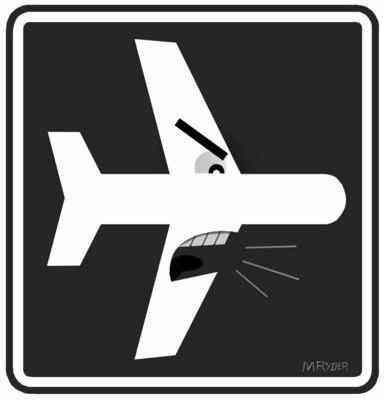- MENU
- HOME
- SEARCH
- WORLD
- MAIN
- AFRICA
- ASIA
- BALKANS
- EUROPE
- LATIN AMERICA
- MIDDLE EAST
- United Kingdom
- United States
- Argentina
- Australia
- Austria
- Benelux
- Brazil
- Canada
- China
- France
- Germany
- Greece
- Hungary
- India
- Indonesia
- Ireland
- Israel
- Italy
- Japan
- Korea
- Mexico
- New Zealand
- Pakistan
- Philippines
- Poland
- Russia
- South Africa
- Spain
- Taiwan
- Turkey
- USA
- BUSINESS
- WEALTH
- STOCKS
- TECH
- HEALTH
- LIFESTYLE
- ENTERTAINMENT
- SPORTS
- RSS
- iHaveNet.com: Travel
Allowing Cellphones In-Flight Would Make Air Travel Even Worse
By Peter DeFazio

Peter DeFazio, a Democrat from Oregon, is a member of the House Committee on Transportation and Infrastructure.
With airline customer satisfaction at an all-time low, this is not the moment to consider making airplane travel even more torturous by allowing in-flight cellphone conversations. After arriving hours early at the airport and often after waiting for a delayed, or even canceled, flight, what could make air travel worse?
How about being stuck next to a person droning on about his latest breakup or medical procedure for the length of your flight? Sadly, this scenario is already a reality in Europe. With Internet access coming to planes in the United States, it is only a matter of time before carriers in the search for more revenue push to explore the option of in-flight cellphone use.
In-flight voice use of cellphones is overwhelmingly opposed by consumers.
A 2007 survey by the
My legislation, the Halting Airplane Noise to Give Us Peace Act--or HANG UP--would make sure this does not happen. This legislation recently passed the
It is bad enough when the person sitting next to you on an overnight flight leaves the light on. Now imagine trying to sleep while he yaks on the phone. And on a plane, unlike on a bus or a train, a passenger cannot get up and move to get away from a person's cellphone conversation. That is why the
Ringing cellphones and loud phone conversations will not only disturb and annoy fellow travelers but could result in arguments and fights at 30,000 feet, forcing flight attendants to serve as referees. Even worse, imagine a situation where 75 people are on their cellphones while flight attendants are trying to make a safety announcement, and they can't be heard over the din of conversation. Flight attendants
consider in-flight cellphone communication a serious safety concern. That is why the HANG UP Act has been endorsed by the
The interest groups pushing for in-flight cellphone use are the people who stand to make money off the calls. They are not the people who spend large amounts of time on airplanes like flight attendants and business travelers. The only vocal opposition to the HANG UP Act has come from the Inflight Passenger
The communications coalition claims that "initial service deployments in Europe, the Middle East, and Asia show positive results," but as of March of this year, there have been only 10,000 calls made, there are a limited number of outgoing lines on every aircraft, and rates are comparable to international roaming charges, making calls very expensive. As technology progresses, these restrictions will most likely be eliminated, increasing the number of calls and the potential for severe problems.
Furthermore, the coalition contends that existing background airplane noise cancels out most normal conversations beyond a row of seats. Airplane background noise is loud, which means people are going to talk even louder to be heard on their phones, thus not canceling out the sound of their voices.
Finally, those in favor of cellphone use assert that flight attendants should be able to successfully promote appropriate phone etiquette. This is a responsibility that flight attendants do not want and should not be worried about when they already have more important safety concerns to attend to.
Opponents of my legislation claim that the market will regulate the in-flight use of cellphones. Not long ago, however, the market failed consumers' health with regard to the ability to smoke on planes. Passengers were subjected to breathing secondhand smoke on flights, which led to increased respiratory problems for frequent fliers and flight attendants. Market forces will not lead to quieter airplane cabins; they will lead to more ticket-pricing tiers--adding more expensive seats in a quiet section, perhaps--and even air-travel rage.
America is not trailing behind when it comes to in-flight cellphone conversation, as opponents of the act purport. We are actually leading the charge on just-bearable air travel. Remember, the market will not keep airplanes quiet; it will lead to more expensive tickets for weary travelers who are desperate to escape the cellphone racket.
When it comes to in-flight phone conversations, less is more. The HANG UP Act will keep it that way.
If Europe Can Handle In-Flight Cellphone Use, So Can America
© U.S. News & World Report
AUTOS | HOBBIES | EDUCATION | FAMILY | FASHION | FOOD & RECIPES | HOME DECOR | RELATIONSHIPS | PARENTING | PETS | TRAVEL | WOMEN
Travel | Allowing Cellphones In-Flight Would Make Air Travel Even Worse